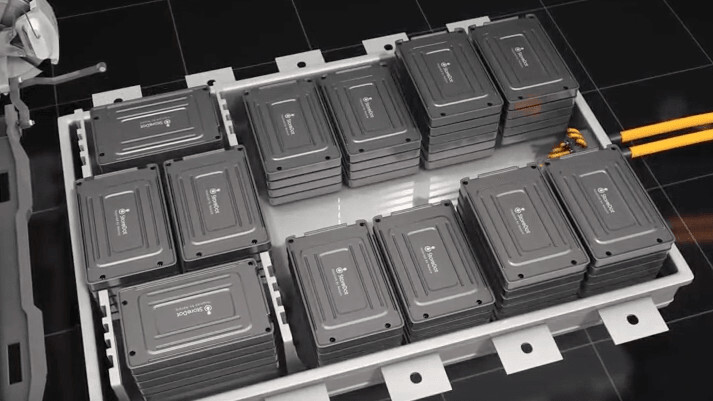
Israel’s StoreDot has done a lot of interesting stuff with battery technology, but what it’s demonstrating today at CUBE Tech Fair in Berlin is for the history books.
The company is launching its new FlashBattery technology, which promises to allow you to charge an electric car in just five minutes.
The battery ditches the traditional Lithium Ion makeup in favor of one of its own design, which arranges layers of nano materials and proprietary organic compounds to support ultra-fast charges.
While current battery managers are focused on better mileage, Storedot’s FlashBattery emphasizes speed of charge above everything else.
This is something few other manufacturers are focusing on. Tesla’s SuperCharger stations, for example, take at least 75 minutes to go from zero-to-full.
In a statement, Dr. Doron Myersdorf, Co-Founder and CEO of StoreDot, said “Fast Charging is the critical missing link needed to make electric vehicles ubiquitous.”
“The currently available battery technology dictates long charging times which makes the EV form of transportation inadequate for the public at large. We’re exploring options with a few strategic partners in the auto space to help us boost the production process in Asia and reach mass production as soon as possible.”
StoreDot also promises that FlashBattery is safer than the current family of batteries used in electric cars, as they aren’t flammable and have a higher temperature of combustion.
If true, this is great news. In 2013, Tesla was rocked by news of several of its Model S cars catching fire, causing its share price to tumble, and forcing CEO Elon Musk to pen a contrite open letter to the public.
StoreDot, which has raised $66 million over four rounds, has already looked into using its technology in smartphones. That particular application was demonstrated at last year’s Mobile World Congress.
The company expects its batteries to hit the market within the next three years. So, don’t be too shocked if your next eco-friendly motor packs one.
Get the TNW newsletter
Get the most important tech news in your inbox each week.




